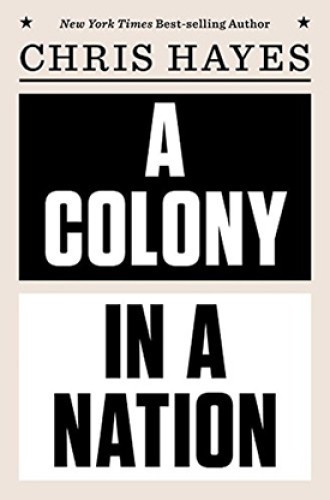Colonial Americans suffered under a two-tiered justice system. Later they created one.
Since before the revolution, punishment has depended on who’s being punished.
Everyone knows the United States has a broken justice system when it comes to race, right? Wrong, says MSNBC journalist Chris Hayes. We don’t have a problematic justice system. We have two justice systems—one for the colony and one for the nation—and they’re both broken. Our colony is not in some land far away: it exists within the nation. We have two classes of people, one with the rights of citizens and the other at the mercy of the whims of the state. And the lines are most clearly drawn along race.
It’s not a perfect theory and it would never pass a Ph.D. examination, but it’s bold enough to be quotable and instructive. Hayes, a skilled interviewer known more for his quick wit than his academic degrees, joins Rachel Maddow in the new class of journalists who are not afraid to venture into policy and give their own personal analysis of the news they cover, for better or worse.
Hayes thinks the inequities in our country are nothing new. We are living out a pattern that began before we were a nation, and we drag our old colonial wounds and abuses into the present day with us. When America became a nation, revolutionaries made a colony of the slaves and their descendants, establishing a two-tiered justice system that continues to this day.






